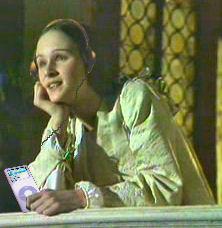 Quote: “Good night, good night! Parting is such sweet sorrow,/ That I shall say good night till it be morrow.” William Shakespeare, Romeo and Juliet.
Quote: “Good night, good night! Parting is such sweet sorrow,/ That I shall say good night till it be morrow.” William Shakespeare, Romeo and Juliet.
Figure of Speech: oxymoron, the compressed paradox. From the Greek, “sharp dullness.”
The ancients Greeks, those witty chaps, made their term for an oxymoron … an oxymoron! (By “sharp dullness” they meant “cleverly stupid,” not “old knife that can give you tetanus.”)
Shakespeare, that even wittier chap, uses it as a neatly packaged expression of love. It’s hard to say goodbye, but then I can look forward to saying hello. This reminds Figaro of the old song line, “How can I miss you if you won’t go away?”
Speaking of which, we’re giving you a chance to miss us for a few days. Occasionally, Figaro’s clients have the ill grace to make him work every once in a while. He hopes to get back to figuring late in the week. If you can’t wait that long (and who can, really?), throw him some rhetorical questions in Ask Figaro, or read excerpts from his new book.
Snappy Answer: “Morrow is, like, so yesterday. So just IM, me, ‘k?”